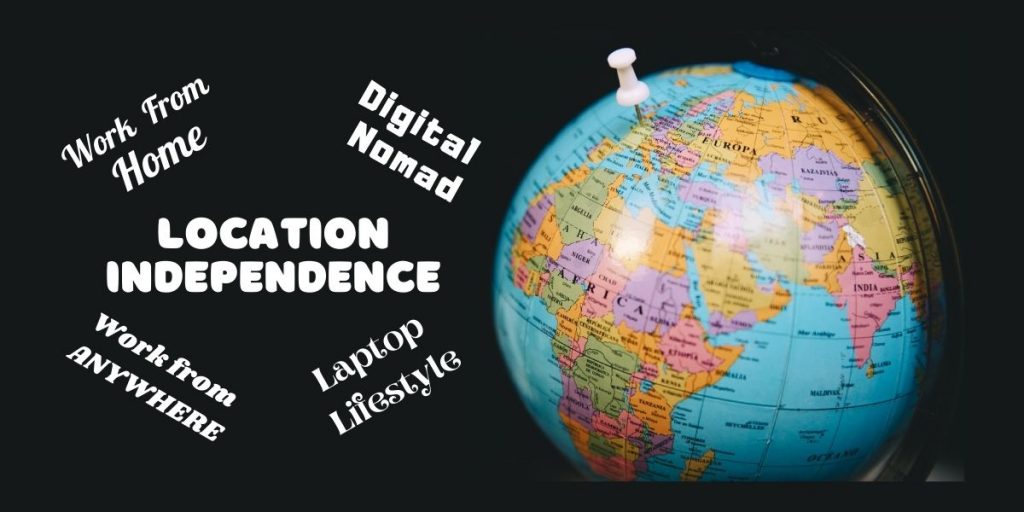A fairly recent term, location independence was coined to describe the lifestyle of knowledge workers who do not need to maintain a fixed physical presence in order to earn their living. The Internet and other distance-shortening tools have allowed these knowledge workers to easily provide products and services across borders and across time zones. Some location independent professionals then use that freedom to become nomads, while others maintain stable residences in their location of choice.
Who Are They?

Location independent professionals are often freelancers or entrepreneurs who independently maintain their own client or customer base in order to make their living. However, employees who telecommute or who have relatively flexible working arrangements can also be considered location independent professionals.
What Do They Do?

Location independent professionals are not by any means limited to one type of job or industry, but certain career areas more readily lend themselves to location independence, such as:
- Programming
- Web development
- Sales
- Graphic design
- Writing
- Translation
- Photography
- Consulting
- Internet commerce
Where Do They Work?
Depending on one’s personal preferences and particular career path, location independent professionals can work from locations as diverse as a bedroom converted into a home office, a café, a hotel room, an airport lounge, a library, or a beach.
The New Road Warrior

With the new mainstream popularity of concepts such as making money on the Internet and lifestyle design, location independence has become a rallying cry for many people who desire to have a more flexible work life. At the same time, location independent professionals are almost invariably dependent on tools like a laptop or netbook and the availability of a regular Internet connection.
In order to be connected to clients and peers as well as work efficiently, location independent professionals frequently make use of tools like web conferencing software, Internet-based email, VOIP for phone calls, document sharing (with Google Docs, for example), social media websites for networking, cloud computing for data backups, and Internet-based accounting software for recordkeeping.
Potential Drawbacks

What location independent professionals gain in freedom, they often lose in built-in social networks. Like other home-based freelancers or entrepreneurs, the opportunities for regular face-to-face socializing are less than what an average office worker typically experiences. This makes cultivating social contacts outside of work even more important.
One of the great advantages to location independence is that it generally does away with time-wasters such as commuting to a job site and mandatory attendance at unnecessary meetings. However, location independent professionals must often be more self-reliant than your typical office worker. This means they often need to secure their own Internet connection (particularly if they live a nomadic lifestyle) and troubleshoot their own equipment instead of relying on an in-house IT department.
A 21st Century Model
As the knowledge economy continues to expand and the available technological tools become increasingly more sophisticated, location independence has the potential to become a working model for more and more people around the world.


















